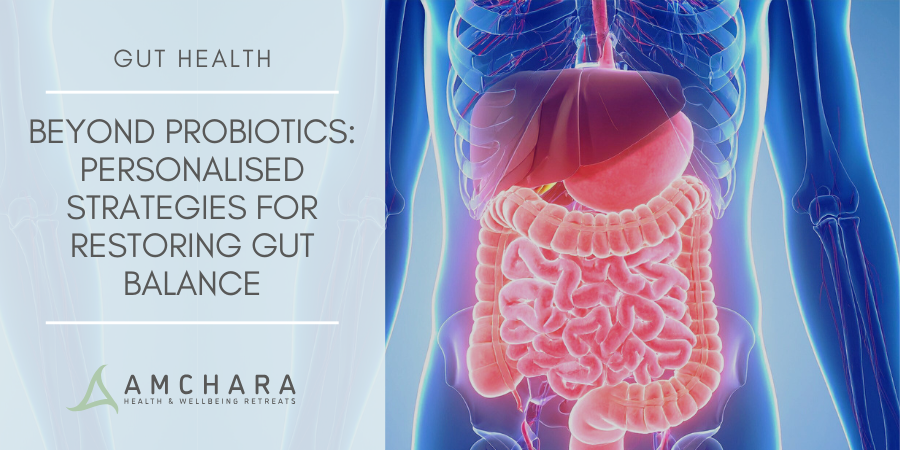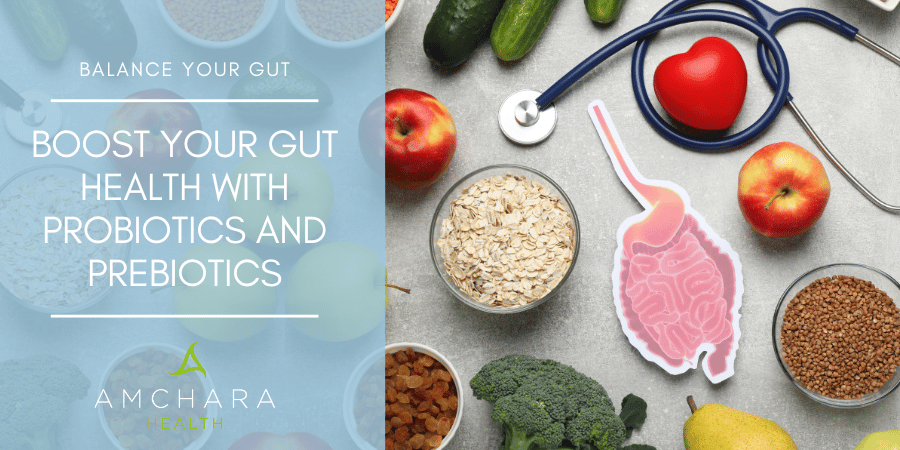Topics Covered in this article:
- What is My Microbiome?
- Gut Bacteria and Obesity
- Dietary Fibre and Weight Management
- Carbohydrate-Loving Bacteria and Weight Loss Success
- Your Microbiome and Metabolic Changes
- Your Microbiome and Appetite
- The Microbiome and Persistent Weight Loss
- Your Microbiome and Inflammation
- Foods to Balance Your Microbiome
Have you ever wondered why some people seem to be able to lose weight at the drop of a hat whenever they want to, while others try all sorts of approaches to weight loss without success?
While there are plenty of possible reasons for this including blood sugar control, genetics, stress or hormone imbalance, have you ever considered it might be your microbiome.
Our mission is to provide you with both insightful information and evidence-based content to provide you with actionable knowledge and tips you can trust, to help you on your journey to optimal health.
In this article we take a look at what the microbiome is, how it can influence metabolic change, appetite and weight loss as well as foods that can help to balance your microbiome.
What is My Microbiome?
The microbiome is the name for the trillions of bacteria residing in our digestive system.
There are over 2000 different species which potentially inhabit our gut and the amazing thing is, your microbiome is completely individual to you.
In other words, the ratio and amount of different species is unique to every single person on this planet.
We’re gifted the starting point for our microbiome by our mother during birth.
However, the amount and number of species residing inside us when we are adults is determined by many outside influences like our nutrition, stress levels and any medical drugs taken.
Scientists are only just starting to discover the enormous effect of our microbiome on many aspects of our health.
We already know it’s extremely important for our digestion, the production of certain vitamins and other substances necessary for health and for hormone regulation.
It’s now becoming evident our microbiome may influence our wellbeing in other complex ways.
New research suggests the bacteria that make us their home can play a role in how easy or otherwise it is to lose weight.
Evidence is now demonstrating the role our gut bacteria play in obtaining, storing and using energy obtained from our food.
Gut Bacteria and Obesity
Initially, researchers discovered the microbiome of obese people differs significantly from that of thinner people.
Obese people appear to have fewer species of bacteria living in their digestive systems.
This even holds true for twins, ruling out genetic differences.
Bacterial diversity appears to protect against obesity (1).
Dietary Fibre and Weight Management
Certain gut bacteria can digest dietary fibre and research has found people who eat plenty of fibre tend to weigh less.
Gut microbe diversity is positively influenced by a high-fibre diet.
Eating fibre-rich foods also influences the types of bacteria present (2).
The specific strains of bacteria appear to vary according to our body weight and may also determine how much weight is lost on specific diets.
Scientists looked at two types of bacteria called Prevotella, which is known to digest fibre, and Bacteroidetes.
Participants ate a wholegrain diet high in fibre.
Those with a higher ratio of Prevotella at the start of the experiment lost significantly more body weight than those playing host to predominantly Bacteroidetes species (3).
This may explain why particular weight loss regimes are successful for some people but not others.
Carbohydrate-Loving Bacteria and Weight Loss Success
Other research has discovered people who found it difficult to lose weight had a population of gut bacteria rich in certain strains which are better at using carbohydrates.
These types of bacteria produce plenty of energy for us from the types of carbohydrates we can’t digest ourselves.
The bacteria have enzymes to do this, while we don’t produce these enzymes.
This may actually make weight loss trickier.
Researchers looked at stool samples from overweight or obese people as they started on a weight loss programme which included exercise, dietary and behavioural changes.
Stool samples were again collected and analysed after they had participated in the programme for three months.
If participants lost over 5% of their body weight the programme was deemed a success.
The average weight loss after three months in the successful group was over 7kg.
In the unsuccessful group, it was an average of just over 1.5kg.
When the stool samples were analysed, researchers found increased levels of a type of bacteria named Phascolarctobacterium in those participants in the successful weight loss group.
In contrast, increased levels of a bacteria called Dialister, which thrive on carbohydrate, was associated with failure to lose weight (4).
These findings could partly explain why studies on weight loss often lead to conflicting results.
However, more research is needed because it’s not currently clear how accurately stool samples represent the balance of bacteria living within the digestive system.
It could have simply been the case that these people were excreting more of these specific types of bacteria in their stools.
Your Microbiome and Metabolic Changes
Another study, this time on mice, took gut bacteria from pairs of human twins – one obese and one lean.
The bacteria were then transplanted into normal weight mice who had been raised without a population of gut bacteria of their own.
Those mice receiving the bacteria from obese people gained more weight and fat and showed metabolic changes similar to those seen in obesity.
This was despite all mice being fed the same low-fat diet (5).
Scientists recorded high amounts of specific amino acids known as branched-chain amino acids in the obese mice, which were similar to those seen in obese, insulin-resistant humans.
Later, the mice were housed together. When living together, bacteria from the obese-implanted mice would naturally be passed on to the lean-implanted mice.
Researchers found the mice with the obese bacteria started to experience metabolic changes related to leanness after just ten days of being housed together with the lean mice.
Could a propensity to obesity be passed on to others?
Your Microbiome and Appetite
Our bodies produce different hormones which regulate our appetite, such as leptin and peptide YY which make us feel full and ghrelin which causes hunger pangs.
Your unique population of gut bacteria appear to be able to produce these satiety chemicals.
The bacteria we play host to depend on us for food – and when they are hungry, they let us know about it!
We know diets high in specific fermentable carbohydrates can alter the population of gut bacteria.
Inulin is a type of fermentable carbohydrate found naturally in many foods such as Jerusalem artichoke, leeks and onions.
Studies have shown diets high in inulin result in the production of short-chain fatty acids (SCFAs) by our gut bacteria.
We know SCFAs can be themselves used for energy, but they also appear to act as important signalling molecules in their own right.
In this case, they stimulated receptors which increased the amount of peptide YY produced, so study participants consumed less food and did not become obese (6).
Our microbiome may also influence our insulin sensitivity.
Various SCFAs are produced by gut bacteria, including butyrate, acetate and propionate.
One study gave propionate to overweight people and found increased levels of peptide YY was released after meals by the cells of the digestive system. Another substance called GLP-1 was also found to be elevated.
This is secreted by cells lining the small intestine and encourages the release of insulin, helping cells take on board glucose.
It also helps us feel full by stimulating satiety centres in the brain and slowing the rate at which the stomach empties.
Study participants experienced significantly less weight gain and abdominal fat, along with better insulin sensitivity.
They also spontaneously ate less food (7).
The Microbiome and Persistent Weight Loss
After successfully losing weight, many people end up regaining it afterwards, a phenomenon known as yo-yo dieting.
This may also be related to our gut bacteria.
Scientists transferred gut bacteria from mice who tended to regain weight after dieting into different mice who didn’t have this predisposition.
They found this tendency was transferred along with the bacteria.
Researchers also discovered having a microbiome which tended towards weight regain was connected with diminished flavonoid levels.
Flavonoids are a type of antioxidant which give plants their pigmentation.
They are involved in energy expenditure and heat production by the body (8).
Therefore our microbiome may determine how likely we are to regain weight after a weight loss programme.
If the balance of gut bacteria can be altered, it follows it’s more likely long-term weight loss will be successful.
Your Microbiome and Inflammation
It’s becoming obvious inflammation is at the heart of many health problems, but recent research is also linking it to obesity.
We know obesity predisposes a person towards an inflammatory state, however, scientists are now finding inflammation can itself lead to obesity.
Inflammation can in part be diet-related.
We know eating too much sugar or the wrong types of fats can lead to high blood levels of chemicals associated with inflammation.
An unhealthy microbiome can produce chemical toxins known as bacterial lipopolysaccharides (LPS) which cause inflammation when they enter the bloodstream.
Studies have shown LPS release is greater when we eat a high fat diet, however, LPS can cause an increase in weight independently of the amount of fat eaten.
When LPS is administered, the same amount of weight is gained as when a high level of fat is consumed.
However, other types of intestinal bacteria may work in the other direction by reducing inflammation and preventing weight gain.
Bacteria called Bifidobacteria and Akkermansia have been found to reduce inflammation and with it weight gain and insulin resistance.
The bacteria also appear to produce certain anti-inflammatory compounds and can help improve the selectivity of the intestinal lining which would otherwise let inflammatory molecules enter the bloodstream.
Foods to Balance Your Microbiome
What you eat can have a huge impact on your microbiome.
Try the following strategies to nurture a weight-loss friendly bacterial balance:
- Eat plenty of high fibre foods, including fruit and vegetables, nuts, seeds, pulses and whole grains. It’s well known plant-based foods can improve the diversity of our microbiome, which is connected with healthy weight maintenance.
- Avoid sugar and refined carbohydrates which can feed non-beneficial bacteria. Even artificial sweeteners have been found in studies to contribute to the growth of undesirable gut bacteria. It may seem hard at first, but a sweet tooth does subside over time.
- Healthy fats such as seeds containing omega-3 oils have been shown to support a healthy diverse microbiome. Excess saturated fats from animal sources can contribute not only to a disordered gut bacteria but also inflammation throughout the body. High fat diets have been seen to result in lower levels of Bifidobacteria species in the microbiome.
- Foods like flax seeds, dark chocolate, berries and some spices contain high levels of antioxidants called polyphenols. These act as food for our gut bacteria and help encourage the metabolism of fat. Polyphenols also include curcumin, found in turmeric, resveratrol from red grapes, anthocyanidins, rich in blueberries and catechins in green tea.
- Try some fermented foods such as live yoghurt, sauerkraut, kefir, kombucha and kimchi. Because these foods contain live bacteria, they can encourage the growth of beneficial bacteria and the maintenance of a healthy microbiome.
- A probiotic supplement can help restore beneficial gut bacteria. In studies, supplementation of probiotics has been found to lead to lower BMI.
This doesn’t need to be the end of the article. With your help let’s continue the conversation.
Did you find this article useful?
Please share your thoughts in the comments.
By: By Cathy Robinson BScDipNutMed
READ THIS NEXT:
- Blog Post: Good health starts in the gut
- Blog Post: The Gut: the centre of your health?
- Blog Post: 7 Day Detox A Cleansing Procedure To Help With Weight Loss
- Blog Post: Balance These Six Hormones If You Want to Lose Weight
- Blog Post: Could Fasting Help You Lose Weight?






